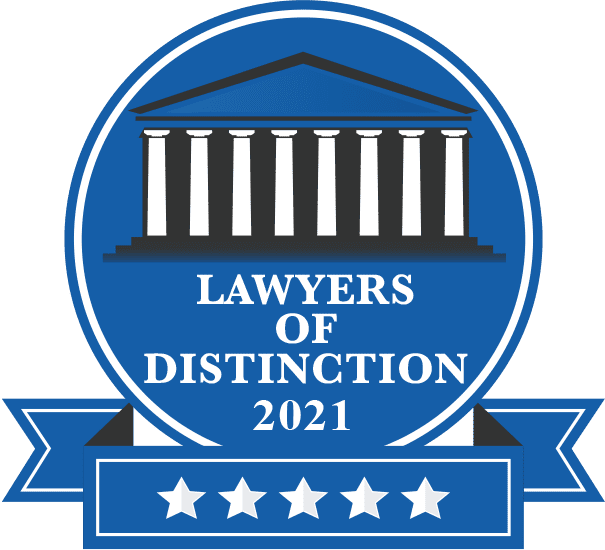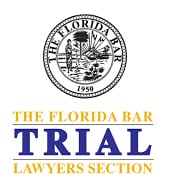In most cases, car accidents are a total mess. People get hurt, traffic gets delayed, and drivers of both vehicles are often flustered, anxious, and overwhelmed. Not only are victims coping with minor to severe injuries, but they may also have to deal with uncooperative perpetrators and stingy insurance companies. Rear-end accidents, in particular, can be especially frustrating because you never see them coming and there’s usually nothing you can do to avoid them.
After a rear-end car accident, it’s important to keep a cool head and proceed tactically. A strategic misstep could lead to a less-than-fair car accident claim. Despite rear-end crashes being so common in Florida, many drivers may be unsure of how to proceed after the accident. For the best possible outcome, contacting an accident lawyer is usually a good first step.
Determining Liability after a Rear-end Accident
Except in a limited number of situations, the driver who rear-ends another vehicle is almost always going to be labeled at fault for the car accident. There are a few instances where the lead vehicle bears some level of liability for a rear-end collision because of actions such as:
- Slamming on the brakes without a valid reason
- Reversing suddenly
- Continuing to drive with a mechanical problem or flat tire and not using hazard lights or pulling over
- Not repairing a broken brake light or other faulty equipment
If none of these factors were present in your rear-end crash, it’s likely that determining liability will be relatively straightforward.
The Most Common Causes of Rear-end Collisions
Even a minor rear-end collision can inflict widespread damage to your body as a result of the powerful force impacting your body. Here are some of the most common injuries you may suffer after getting rear-ended:
- Whiplash: Whiplash is a common car accident injury, especially in the case of rear-end crashes. Whiplash occurs when a person’s head moves backward and forward suddenly with great force.
- Spinal injuries: All the forces that harm the soft tissue in your head and neck can also cause structural damage to your vulnerable spinal column. Victims of rear-end collisions often find themselves dealing with ruptured discs, injured vertebrae, and in serious cases, damage to the spinal cord.
- Brain trauma: Just as the head and neck move somewhat independently of the torso, the brain moves somewhat independently of the skull. When a person’s head sustains an impact or a sudden jolt, the brain itself can sustain tissue damage from moving within the cranium.
- Burns, lacerations, and complex fractures: These represent the three most common types of injuries suffered by occupants of the lead car in a rear-end collision.
It’s important to note that the severity of your injuries may go undetected for hours or even days, which is why any injury sustained in a car accident needs immediate medical attention. Soft tissue injuries like whiplash may seem minor, but they may permanently impair your mobility and leave you with lifelong aches and pains.
How Much Can a Head-on Collision be Worth in Florida?
Because severe injuries are relatively common after a head-on collision, compensation is typically higher than normal. Damages fall into two categories: economic and non-economic.
The Most Common Causes of Rear-end Collisions
Data from the National Highway Traffic Safety Administration (NHTSA) states that rear-end collisions are the most common type of car accident, making up around 30% of all traffic accidents every year. Perhaps the prevalence of these crashes is a result of so many forces at play, including the following:
- Distracted driving: When a negligent driver takes their eyes off the road—whether it’s because of the radio, their phone, or other people in the car—they may miss a stopped vehicle ahead of them.
- Driving under the influence: Driving after consuming drugs or alcohol that change your perception or ability to function is not only a crime, but it also increases the likelihood of facing a rear-end accident.
- Inclement weather: Inclement weather like snow or rain can make it difficult to control or stop your car, which may lead one vehicle to slam into another in front of it.
- Poor judgment: Misjudging the distance between cars can lead to a rear-end collision when you need to stop.
- Changing lanes: When cars change lanes, it’s not uncommon for one vehicle to move in front of another in their blind spot.
- Speeding: Speeding extends the time that you need to react or stop your vehicle and is often the cause of rear-end car accidents.
For legal assistance after a rear-end accident, it may be in your best interest to contact an experienced car accident lawyer in Boca Raton as soon as possible.
Contact a Boca Raton Rear-end Accident Attorney
At Baker Legal Team, we understand how frightening it can be to suffer injuries in a rear-end collision, especially if you’ve been injured as a result of someone else’s negligence. We want to make this process as easy as possible for you. At Baker Legal Team, Attorney Robert Baker will meet with you one-on-one to learn the specifics of your case and to build a concrete defense against the at-fault party.
Robert is a Board-Certified lawyer who knows the ins and outs of Florida rear-end accident laws. He has over 30 years of experience helping drivers with their accident injuries and will stop at nothing to fight for the compensation you deserve. Our expert team is dedicated to keeping you informed every step of the way and helping you overcome this challenging time in your life. Give us a call at (561) 320-0000 or complete our contact form today.











